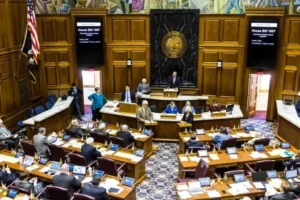Alaska lawmakers have passed an internet sales tax to generate millions in new state revenue without raising taxes on residents. On Wednesday, the Alaska House voted 26-14 to approve the measure, which targets companies earning more than 50% of their sales online from Alaska customers.
This tax is tied to funding a major education bill, House 57, awaiting Governor Mike Dunleavy’s decision. Senator Bill Wielechowski, D-Anchorage, who sponsored the legislation, said it corrects a longstanding unfairness.
The sales tax would require these companies to pay taxes on sales shipped to Alaska, even if the transactions are processed out of state. Currently, online businesses can claim out-of-state sales, avoiding Alaska’s taxes. Under the new policy, companies would be taxed based on the location of the customer, similar to rules already adopted by 36 other states.
Supporters say the tax will level the playing field between local retailers and large online corporations. Senator Rob Yundt, R-Wasilla, said only giants like Amazon hurt local businesses while not contributing to Alaska’s economy.
Some lawmakers raised concerns about potential price increases passed on to consumers. Representative Jamie Allard warned that the tax could act as a hidden cost to Alaskans. But Wielechowski dismissed that fear, arguing that national pricing would prevent such impacts.
The Department of Revenue estimates that once fully implemented, the new tax could generate $25 million to $65 million annually. The tax would cost roughly $250,000 per year.
Revenue from the tax will fund reading improvement grants and career and technical education under House Bill 57. Governor Dunleavy has until May 17 to sign a veto or allow the bill to become law without his signature.











